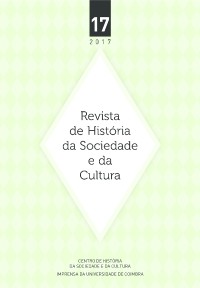Please use this identifier to cite or link to this item:
https://hdl.handle.net/10316.2/92592| Title: | A política assistencial face aos expostos: estudo de caso do encerramento da roda dos enjeitados na Lisboa Oitocentista | Other Titles: | Foundlings welfare: Lisbon’s wheel closure in the 19th century | Authors: | Paulino, Joana Vieira | Keywords: | Child Welfare;Wheel of Foundlings;Santa Casa da Misericórdia of Lisbon;Políticas de Proteção à Infância;Roda dos Expostos;Santa Casa da Misericórdia de Lisboa | Issue Date: | 2017 | Publisher: | Imprensa da Universidade de Coimbra | Abstract: | Durante os primeiros 60 anos do século XIX as exposições nas Casas da Roda portuguesas
aumentaram fortemente, dada a aceitação jurídica e legal do abandono anónimo infantil.
Porém, a elevada mortalidade dos expostos, as suas más condições de vida e os custos da sua
criação conduziram a debates em torno da viabilidade do modelo assistencial vigente.
A partir da década de 1860 as rodas foram gradualmente encerradas, as admissões ponderadas
e controladas e generalizou-se a concessão de subsídios de lactação. Três anos mais tarde,
a Santa Casa da Misericórdia de Lisboa (SCML), instituição responsável pelos expostos da
capital, seguiu esta tendência. capital, seguiu esta tendência.
Focando o contexto nacional, mas, sobretudo, lisboeta, reflete-se sobre o percurso das políticas
assistenciais face aos expostos ao longo do século XIX, dando maior enfoque ao debate
em torno da viabilidade da roda dos expostos, ao seu encerramento e à adoção do novo
modelo de acolhimento. During the first 60 years of the 19th century, the number of foundlings on the Portuguese institutions increased, due to the juridical and legal acceptance of anonymous abandonment. The high mortality rate of these children, their living conditions and the high costs they represented led to debates considering the wheel’s viability and a change in the welfare policy towards the abandoned children. From the 1860’s, the wheels were gradually closed, admissions were restricted and more allowances of lactation were given. Three years later, Santa Casa da Misericórdia de Lisboa (SCML), responsible for the foundlings of the Portuguese capital, followed this trend. Considering national, but, mainly, Lisbon’s context, this study aims to reflect about the steps of foundlings welfare policy during the 19th century, particularly, focusing on the debates towards the wheel, it’s closure and the adoption of another admission model. |
URI: | https://hdl.handle.net/10316.2/43333 | ISSN: | 2183-8615 (digital) 1645-2259 |
DOI: | 10.14195/1645-2259_17_9 | Rights: | open access |
| Appears in Collections: | Revista de História da Sociedade e da Cultura |
Files in This Item:
| File | Description | Size | Format | |
|---|---|---|---|---|
| a_politica_assistencial_face_aos_expostos.pdf | 315.57 kB | Adobe PDF |  |
Items in DSpace are protected by copyright, with all rights reserved, unless otherwise indicated.
